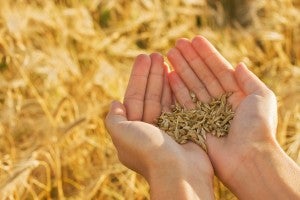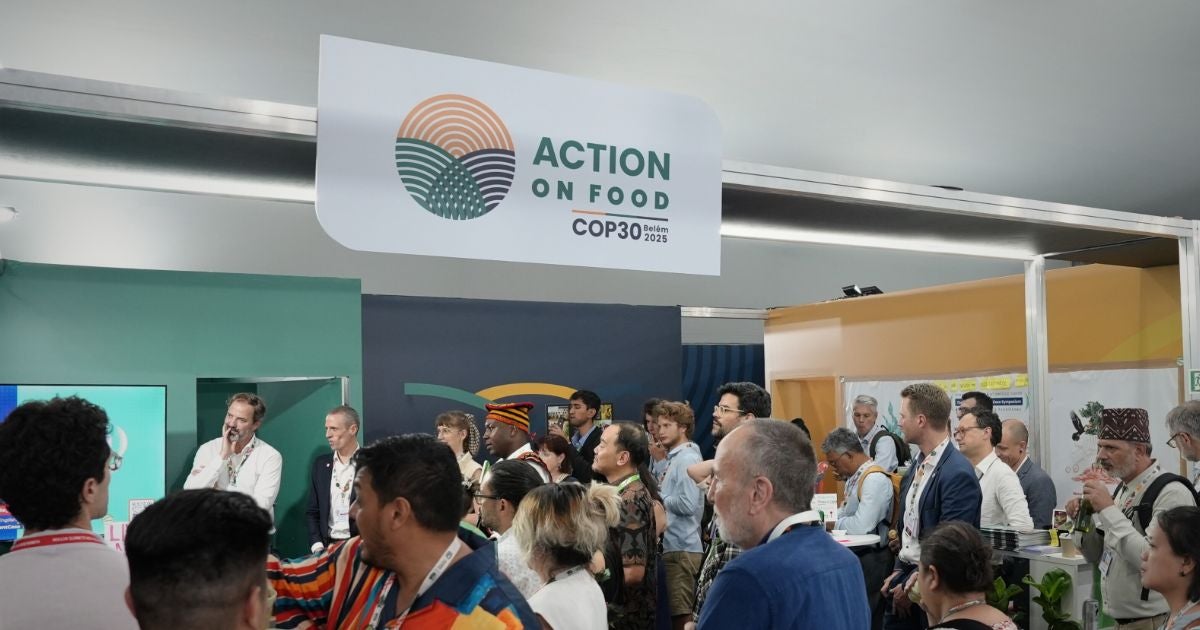Campbell’s Soup expands its fertilizer optimization programs
 There’s a new reason to celebrate your favorite sugar cookie. The Campbell Soup Company has committed to fertilizer optimization in its sourcing areas in Ohio and Nebraska. These areas provide wheat for Campbell’s subsidiary, Pepperidge Farm – and the company will enroll an additional 70,000 acres into its fertilizer optimization programs by 2020.
There’s a new reason to celebrate your favorite sugar cookie. The Campbell Soup Company has committed to fertilizer optimization in its sourcing areas in Ohio and Nebraska. These areas provide wheat for Campbell’s subsidiary, Pepperidge Farm – and the company will enroll an additional 70,000 acres into its fertilizer optimization programs by 2020.
Campbell will work with EDF to create additional fertilizer optimization and soil conservation programs for farmers, and will deploy United Suppliers’ SUSTAIN platform in these sourcing areas to help ensure farmers that changing their practices will not only reduce nitrogen runoff, but also protect yields and farm income.
With this announcement, the momentum for sustainable agriculture is higher than ever. Campbell’s is the latest company to participate in EDF’s Sustainable Sourcing Initiative, joining Walmart, Smithfield Foods, General Mills, and United Suppliers to make fertilizer efficiency and soil health the norm in U.S. grain production.
Committing to improvement
The company’s baseline data from 2012 revealed that Campbell farmers used between 105 and 115 percent of recommended fertilizer rates.
But company executives know that nitrogen fertilizer not absorbed by plants converts into nitrous oxide, a greenhouse gas 300 times more powerful than carbon dioxide. So they made a goal to further reduce these percentages, help farmers’ bottom lines, and reduce their business risk at the same time. The more resilient their supply chain, the better they’ll fare in the face of a changing climate.
As part of a new collaboration with EDF and United Suppliers, Campbell will develop a sustainability reporting system to track and measure the environmental and economic benefits of the project – and then expand fertilizer optimization into other areas.
The company will also work with EDF to conduct on-farm trials of tools that aim to help farmers optimize fertilizer use, to ensure that the tools really work on the ground.
A key part of Campbell’s new announcement is their collaboration with United Suppliers, a cooperative of locally owned and controlled agricultural retailers. United Suppliers’ SUSTAIN™ platform will be deployed across Nebraska and Ohio to offer farmers a set of tools and products that improve nutrient use while enhancing productivity.
The SUSTAIN model, which is also being used by General Mills, has the potential to bring fertilizer optimization practices to scale, since it works by training the go-to sources of information for farmers: agricultural retailers.
Authorized SUSTAIN retailers stand out in the marketplace by offering services to growers that are documented not only to improve efficiencies, save money and result in higher margins, but also promote environmental sustainability for agriculture.
Now that Campbell’s is expanding SUSTAIN, it’s easier than ever for retailers to help their customers address the ecological impact of farming and meet growing demand from food companies across the supply chain.













